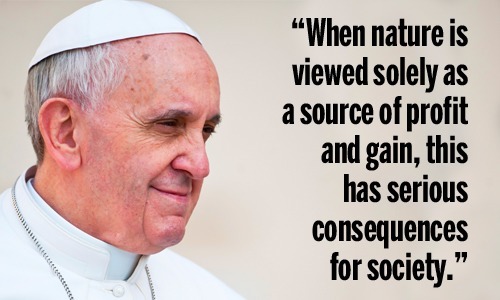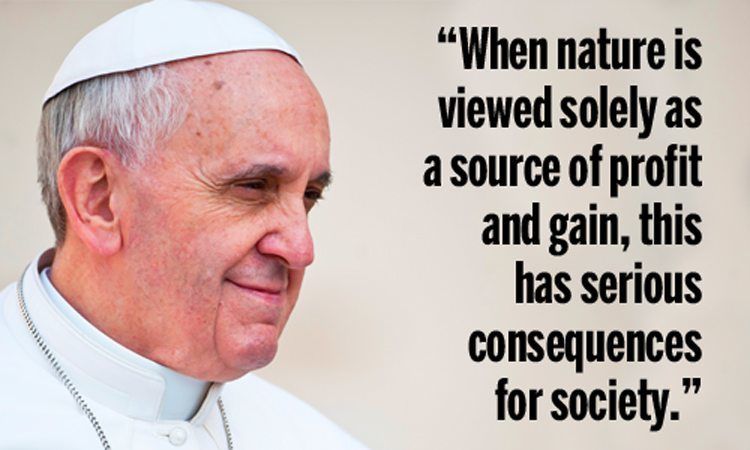


To Pope Francis, “We are faced not with two separate crises, one environmental and the other social, but rather with one complex crisis, which is both social and environmental. Strategies for a solution demand an integrated approach to combating poverty, restoring dignity to the excluded and at the same time protecting nature.” (page 94)

“Yet all is not lost. Human beings, while capable of the worst, are also capable of rising above themselves, choosing again what is good and making a new start, despite their mental and social conditioning. No system can completely suppress our openness to what is good, true and beautiful. I appeal to everyone throughout the world not to forget this dignity which is ours. No one has the right to take it from us.” (pages 134-135)
I have heard this book described as reflecting an anti-capitalist analysis, but that word is found nowhere in its pages. Pope Francis does, however, make clear what he sees as the root of the “complex crisis” we are faced with. He describes it in these ways, among others, throughout the book:
- “current models of production and consumption” (page 23)
- “business interests and consumerism” (page 27)
- “huge global economic interests” (page 29)
- “present model of distribution, where a minority believes that is has the right to consume in a way which can never be universalized” (page 35)
- “new power structures based on the techno-economic paradigm” (page 38)
- “whatever is fragile, like the environment, is defenseless before the interests of a deified market, which becomes the only rule” (page 40)
- “powerful financial interests” (page 40)
- “When nature is viewed solely as a source of profit and gain, this has serious consequences for society.” (page 57)
- “The principle of the subordination of private property to the universal destination of goods and thus the right of everyone to their use, is a golden rule of social conduct and ‘the first principle of the whole ethical and social order.’” (page 64)
- “The technocratic paradigm also tends to dominate economic and political life. The economy accepts every advance in technology with a view to profit, without concern for its potentially negative impact on human beings.” (page 74)
- “The culture of consumerism, which prioritizes short-term gain and private interest, can make it easy to rubber-stamp authorizations or to conceal information.” (page 122)
- “Where profits alone count, there can be no thinking about the rhythms of nature, its phases of decay and regeneration or the complexity of ecosystems which may be gravely upset by human intervention.” (page 125)
For me, I find this kind of specificity about how the dominant system in the world operates refreshing and helpful.

 233k
233k  41k
41k  Subscribe
Subscribe 